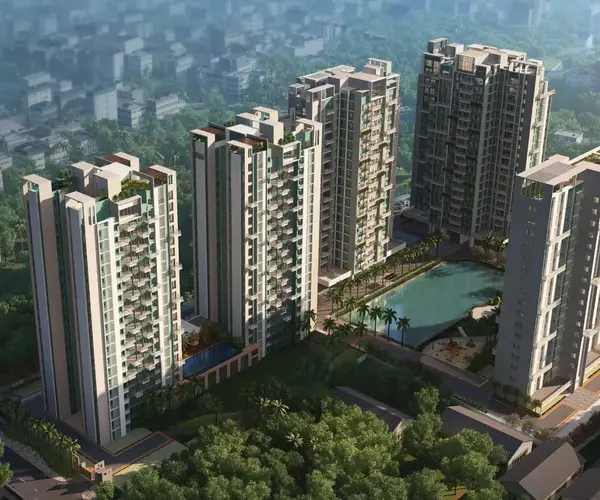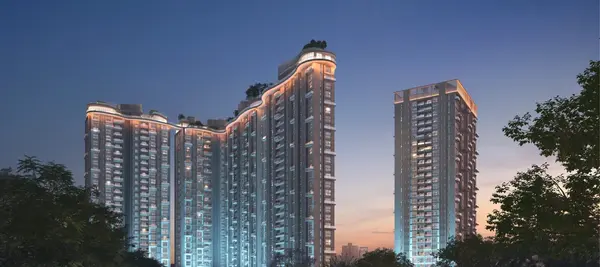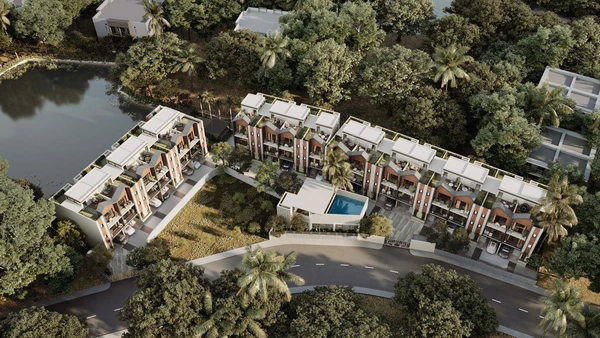Recent Post

Indian Real Estate Surge: Unpacking the $10 Trillion Opportunity by 2047
Envision a city where majestic skyscrapers rise alongside lush green parks, lively urban areas vibrate with energy, and each street corner showcases a seamless fusion of innovation and eco-friendliness. This is not a distant dream but a vivid reality that India is on the brink of achieving. With projections estimating the Indian real estate sector could soar to $10 trillion by 2047, the stage is set for an unprecedented transformation.
As nearly half of India’s population migrates to urban hubs, the demand for diverse real estate assets—housing, offices, and retail—will surge. According to a groundbreaking report by Colliers and CREDAI presented at the 22nd CREDAI-NATCON event in Sydney, this sector is poised for remarkable growth driven by rapid urbanization, robust infrastructure development, and the rise of sustainable living practices.
From a modest market size of under $1 trillion today, the Indian real estate sector is projected to expand significantly, with contributions to the nation’s GDP anticipated to reach as high as 20%. With varied growth scenarios suggesting a potential range from $3 trillion to a staggering $10 trillion, the future of real estate in India holds immense promise. As we embark on this journey towards a dynamic and innovative urban future, the opportunities for investors, developers, and aspiring homeowners abound, setting the stage for an era marked by progress and transformation.
The Transformative Role of Real Estate in India’s Economic Growth
As India approaches its centenary year of independence, the real estate sector is set to become a cornerstone of the country’s economic growth trajectory. This long-term expansion is supported by six crucial growth levers: rapid urbanization, infrastructure development, digitalization, demographic shifts, sustainability, and investment diversification. These factors will be instrumental in shaping the future of Indian real estate, creating a dynamic environment ripe with opportunities.
A Quantum Leap in Real Estate
The upcoming years promise a quantum leap in real estate activity, driven largely by the demographic shift that will see nearly half of India’s population residing in urban agglomerations by 2050. This urban migration will catalyze a surge in demand for housing, commercial spaces, and retail environments, redefining the real estate landscape. The evolving needs of a growing urban populace will create a diverse array of opportunities for developers and investors, positioning the real estate sector as a vital player in the economy.
Related reading: Green Spaces in Urban Living: Benefits and Implementation
Shifting Demographics Driving Activity
The changing demographics in India are a significant force propelling real estate activity. As younger generations enter the workforce, their preferences for urban living and modern amenities will shape market trends. This shift will not only influence residential demand but will also drive the need for office spaces, retail environments, and mixed-use developments that cater to the aspirations of a more urbanized population.
Embracing Alternative Investments
According to recent reports, alternate investments are expected to become mainstream in the Indian real estate market. The anticipated influx of foreign capital, alongside robust participation from domestic investors, will accelerate the adoption of alternative funding strategies. Green financing is also emerging as a key trend, promoting environmentally friendly projects and practices within the real estate sector. This shift towards sustainability will attract socially responsible investors, paving the way for innovative financing solutions that prioritize ecological impact.
Digitalization Transforming Real Estate
The Indian real estate sector is increasingly embracing digitalization across various facets, ranging from planning and design to construction and property management. This technological integration will enhance efficiency, reduce costs, and improve overall project delivery. As digital tools become more prevalent, real estate stakeholders can expect to see significant advancements in how properties are marketed, sold, and managed, ultimately transforming the customer experience.
Infrastructure Augmentation and Policy Support
Infrastructure development and a supportive policy environment have enabled the Indian real estate sector to navigate various economic cycles effectively. Over the past few decades, the introduction of regulatory frameworks and acts—such as the Real Estate (Regulation and Development) Act (RERA), the Pradhan Mantri Awas Yojana (PMAY), and Real Estate Investment Trust (REIT) regulations—has bolstered investor confidence and encouraged greater participation from end-users. These frameworks provide essential protections and incentives, fostering a more transparent and robust real estate market.
Expanding Asset Classes
In the coming years, the range of asset classes under REITs and Small and Medium-sized REITs (SM REITs) is expected to broaden beyond traditional sectors like office and retail. Emerging categories such as warehouses, hotels, and rental residential properties will likely gain traction, reflecting the evolving needs of the market. Furthermore, these financing avenues will extend into alternative real estate verticals, including data centers, hospitals, educational institutions, and accommodations for seniors and students. This diversification will not only enhance the investment landscape but also support the broader objectives of urban development and sustainability.
India’s real estate sector stands on the cusp of significant transformation, driven by a confluence of urbanization, demographic changes, and innovative financing solutions. As the country moves toward its 2047 vision, the anticipated growth of the real estate market will play a vital role in shaping the nation’s economic future. By embracing sustainability and technological advancements, the sector is poised to offer diverse opportunities for investors, developers, and homebuyers, ultimately contributing to a prosperous and thriving India.
In this landscape of growth, Sugam Homes, a noted real estate company in Kolkata, emerges as a prominent player in Kolkata’s real estate scene. With over 3.5 decades of experience, more than 25 completed projects, and a satisfied clientele of over 7,000 customers, Sugam Homes has reached remarkable heights in the industry. Our commitment to addressing the needs of people while prioritizing sustainability aligns perfectly with the broader trends shaping Indian real estate. By focusing on creating dream homes that blend love, tradition, and modernity, Sugam Homes fosters a dynamic in-house team dedicated to innovative designs that resonate with the urban lifestyle.
As India’s real estate market expands, companies like Sugam Homes will continue to play a crucial role, contributing to the development of thriving communities while ensuring a sustainable future for generations to come.




